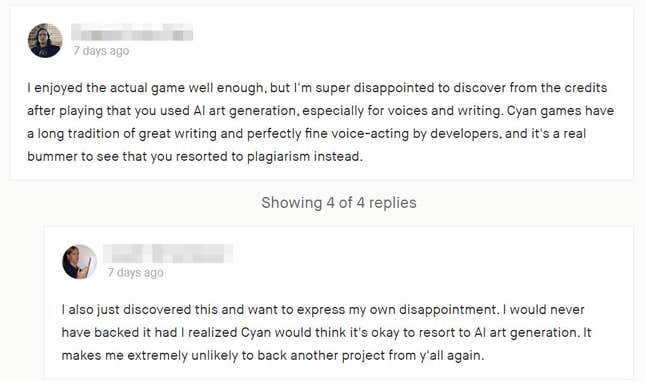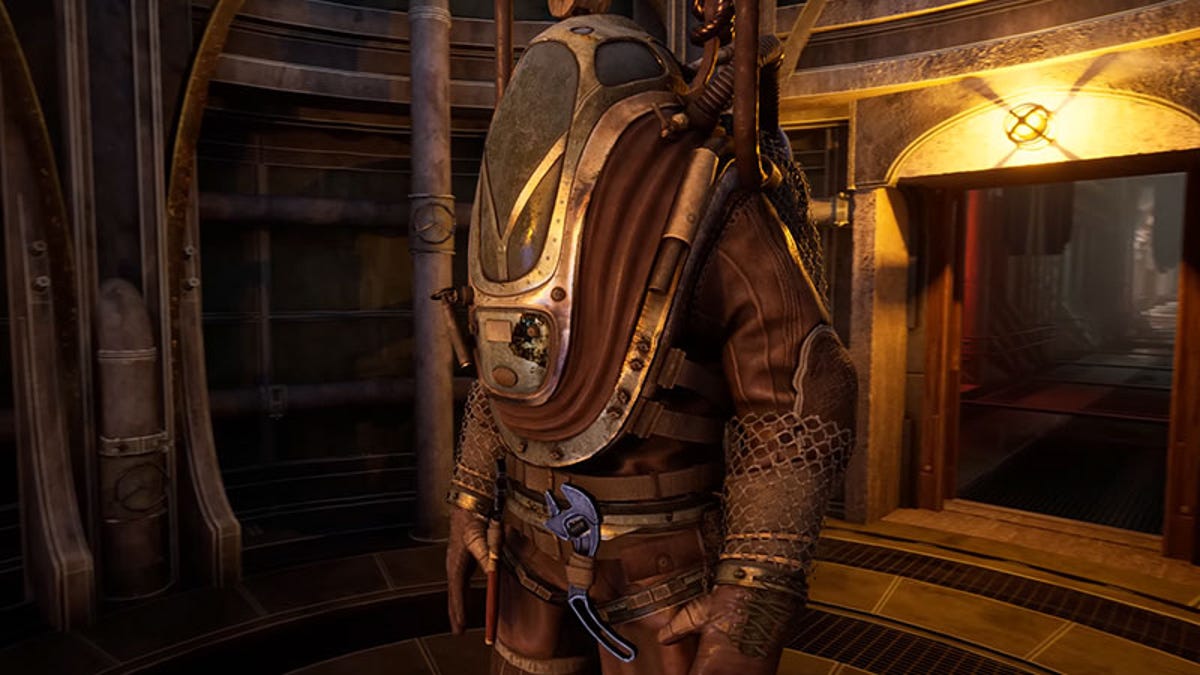Cyan, the studio behind Myst and Riven, has for the last few years been funding its games via Kickstarter. That’s how 2016’s Obduction was made, and it’s also how 2023’s Firmament—with more than a little help from machines this time—was developed as well.
For a studio with such an illustrious history, the decidedly mixed reviews for Firmament should be something of a surprise. Fans are down on some of the puzzle design, but they also repeatedly mention how flat the game’s world feels, how poor the narration is and the sparsity of Firmament’s in-game lore, which really stand out when compared to Cyan’s 90s blockbusters.
Turns out there’s a good reason for some of that. As Gregory Avery-Weir first pointed out after sitting through the game’s credits, the longer you sit through them the more you find that some jobs—like voice acting—don’t get a mention where you’d expect them, alongside composers and artists. Indeed by the time the credits are thanking external partners like Nvidia, you’d be forgiven for thinking they’d forgotten to acknowledge their voice actors entirely.
Until you get to this, literally the last credit flashed on the screen before they start thanking streams of Kickstarter backers:
That sure explains why so many pieces of in-game lore—like “journals, logs, checklists, newapapers, stories, songs, poems, letters” and “loosely scattered papers”—have been described as being so underwhelming, and why so many players had complaints about the lifelessness of its narration.
I reached out to Cyan and asked them specifically about the level of human involvement in the game’s narration and lore texts (newspapers, letters, etc). Their response:
“AI Assisted Content” listed in the credits for Firmament is, well, exactly that. It is content of which its final state you see it as in the game as was assisted, not wholly created, by services built on what many refer to as “AI” that Cyan staff made use of.
For example, all voice acting content was performed by an actual human being 100% of the time (which may have been obvious already if you have listened to it, especially considering the performance cadence and content — we can’t imagine what it would be like if wholly machine generated, to your question) but the final performance timbre, pitch, and tone was modified with one of these services, with the performer’s consent. Hopefully that clarifies things more and provides a good example of what we mean by “AI Assisted Content”.
Note that doesn’t explain why those voice actors aren’t credited (when the AI is!), why they used AI (and not regular recording/mixing tools) to modify the “timbre, pitch, and tone” of a human’s voice, and doesn’t address the numerous other instances fans have complained about, like the poems and songs.
This sucks! This is the third game in a month we’ve had to highlight for either featuring or standing accused of featuring terrible, obviously machine-generated content. The feedback in each instance—even on this game’s Kickstarter page, where many backers pledged their support years ago, before AI-generated content was even a thing—has been clear: people do not want this stuff in their games!



